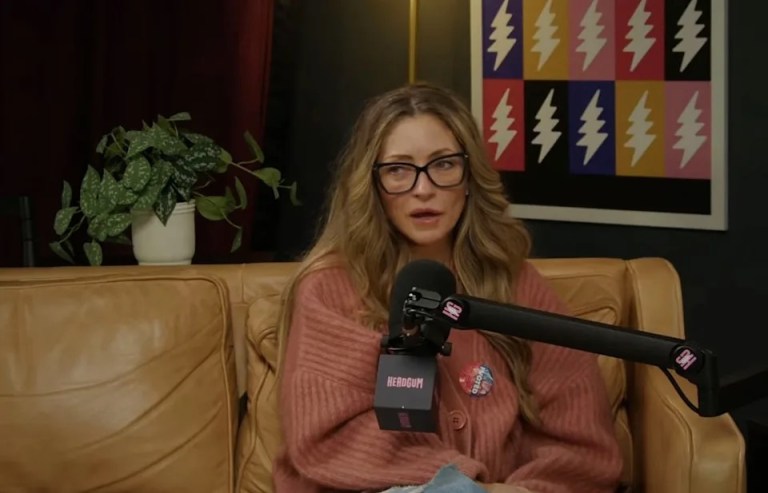
You Are Not Alone In Your Crohn’s Journey
By Dallas
Anyone with IBD can tell you that all of our stories and all of our medical care (including symptoms) are incredibly varied. There is no clear path to getting diagnosed, receiving care, trying to stay in remission, or navigating life with this disease. This can make life with IBD incredibly difficult and hard to manage.
I was diagnosed when I was 9 years old. It was not an easy path. I spent ages 4-9 years old being told that I was a little girl who was stressed out, and that’s why I was having constant stomach problems. I would have to be taken separately by car when going on a field trip, because I would have to be able to stop and go to the bathroom. I learned to have severe restroom anxiety at an early age. This was my narrative for years until my symptoms continued to intensify to the point that I was throwing up every day and started seeing large amounts of blood in my stool. This finally prompted action for my mom to insist on our family doctor doing more than assuming it was how I handled stress. The doctor was not accustomed to doing colonoscopies in 9-year-old children, but we were out of options. The colonoscopy was done with the smallest adult equipment they could find. That was promptly followed by a hospital stay. The doctor initially said it was ulcerative colitis, but wanted me to go see a pediatric GI. The following 4 years were a constant stream of different doctors and hospitals, another colonoscopy paired with an endoscopy, and a definitive Crohn’s Disease diagnosis.
My first experience with a pediatric GI was at Primary Children’s in Salt Lake City. I can remember us waiting around for hours to get in for testing and to speak with the doctors. The isolating feeling is something I’ll never forget. Once my first round of testing was done, the doctor advised my parents that my disease was too advanced, and my colon would need to come out. This was 2000. It wasn’t as common or as well researched in children. The medication options were limited. Thank god my parents decided for another opinion. We tried every possible combination of oral medications, and more steroids and hospital stays to get it under control, but we just couldn’t. After a couple years of absolute misery, we finally decided on an IV infusion I would end up doing monthly for 4 years. It helped control my symptoms, get me off steroids, and allow me a chance at a normal childhood. Like many IBD sufferers, that didn’t last forever and I continued to bounce from biologic to biologic over the years.
My most recent flare was my senior year of college. It came with a fierceness even the doctors didn’t understand. I spent 9 months deteriorating. I spent 32 total days in the hospital, 10 months on opioids and steroids, 3 months with C-diff resulting in an FMT, and months of being bedridden. It broke me. I wanted my suffering to end. Thankfully, we finally found the right biologic and I started recovering. I know that’s a place many people get to at some point in this disease — you are not alone.
Having Crohn’s disease for 22 years and having it as a child has created a whole world of different stressors that, after years of navigating, has finally landed me in a place of peace. Trying to explain to others about the pain, suffering, isolation, anxiety, (need I go on) that come with this disease is incredibly hard, but, to share the intricacies of this disease with anyone willing to listen has really helped me heal.
Find your community! When I got diagnosed, I was young and social media wasn’t around. People with this disease, at my age and in my area, were unheard of, so I spent those early years feeling very alone in my struggles. Now, whether you’re 9 or 90, there are online communities, and even some in person support groups you can connect with, that can help you know you’re not alone. For example: Camp Oasis, Reddit threads, Facebook, and Instagram are all great groups. Everyone involved will be all too familiar with the shit (pun very intended) that we go through. Be selective with these, though. There are a lot of people and pages that can begin to dwell on the “Life is horrible, I’m never getting better” mindset. It’s a dark hole too many of us have found ourselves in. Try not to dwell on that, and instead focus on all the little (and even big) wins, and stay in touch with positive community members.
I understand what it feels like to be isolated and alone and feel like you’re dying (or want to because you are tired of fighting). It’s a crushing feeling at times, but trust me, you’re not alone. You can’t give up and you have to think healing thoughts. There are people out there that need YOUR story.
Learn to manage your stressors when it comes to your mental health. Anxiety can be all-consuming at times. I still struggle with bathroom anxiety and have for years. After you spend so many years having enough accidents, you immediately stress every time you’re not near a bathroom. Be prepared. Know where the bathrooms are wherever you’re going, get bathroom access cards if your country offers them, and eat your “normal” food. To help with the stress, be prepared! Have your “go bag” with you when you’re afraid something may happen. I suggest an empty garbage bag to put soiled items in, baby wipes, dog poop bags to throw baby wipes away, and a change of clothes. Put it all in a Tupperware container because the container can also be used for an emergency toilet.
Find the humor in it. I know it can seem impossible at times but everyone poops. We just happen to do it more often, with more drama and with less control. If someone makes you feel “less than” because of an accident or a frequent need to use the bathroom because “you don’t LOOK sick” or because you constantly cancel plans due to poor health, just educate them. Explain that they need to be more aware, because others may have the same situation that they won’t be able to “see.” If they can’t (or won’t) understand this, then it’s OK to distance yourself. There’s plenty of people out there who will love ALL of you.











